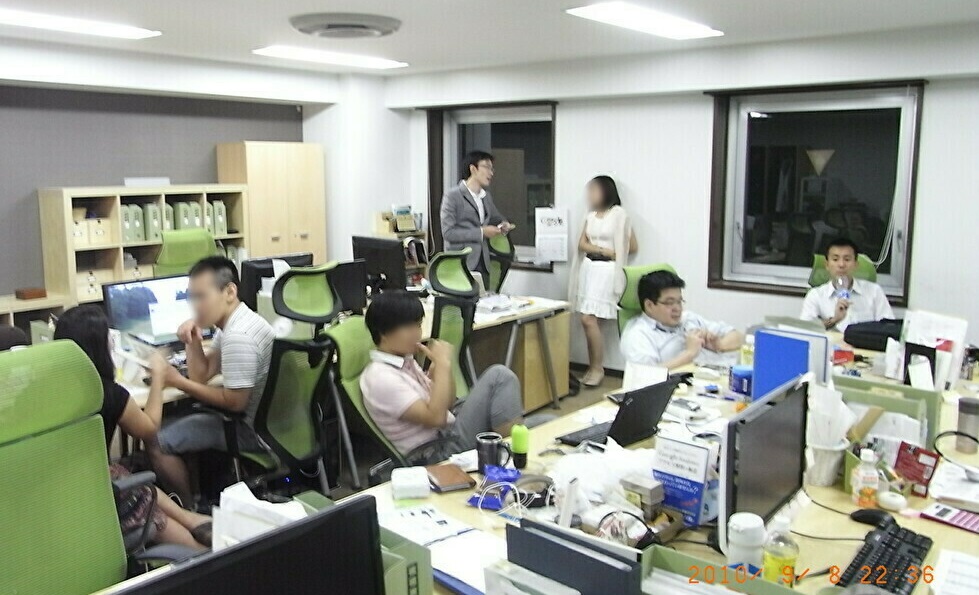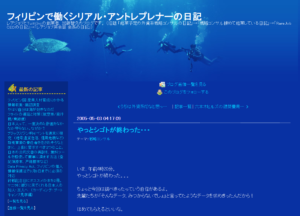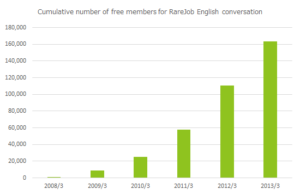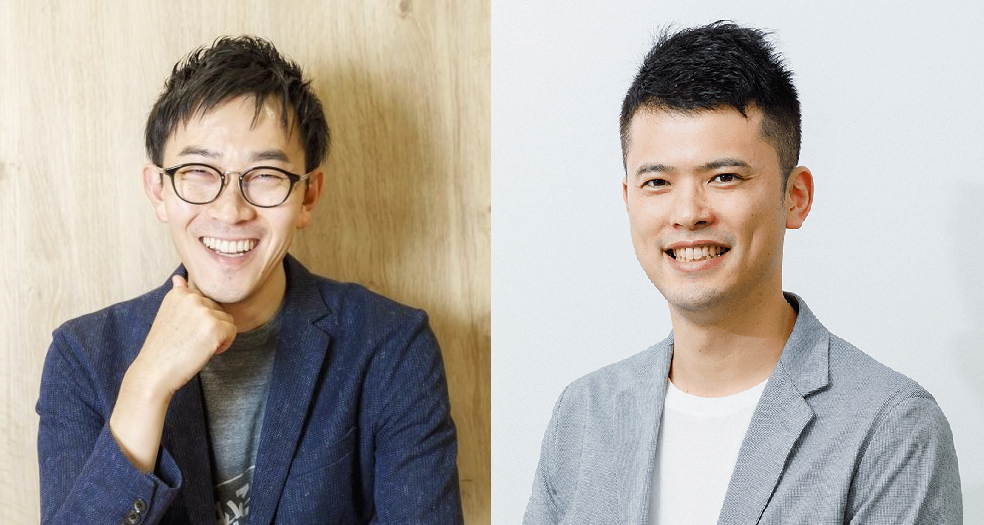#04 The transition from steady service expansion to rapid growth What are the factors to success in the startup era?

It could be said that all startup companies enclose more or less the same atmosphere.
Youth, energy, stimulation, and momentum. Freedom, novelty, a feeling of growth and success.
In the early years at RareJob after founded, all of them had been in place.
Yuichiro Yamada (CEO of Findy Co., Ltd.) had been building his career at a heavy industry manufacturer and a consulting firm when he found Kato’s blog, “Diary of a foreign-strategic consultant, scheduling to start-up,” and he decided to have an interview with Kato. The interview with Kato lasted for two and a half hours, and the last word Kato said was, “I really want to hire you, but I don’t have enough money now, so can I call you next year?” However, on the next day, Yamada received a phone call, saying “From the next month, please” and he found it interesting and decided to join the company.

There were numerous opportunities and challenges at RareJob at the time.
The number of free subscribers exceeded over 10,000, from 2009 to 2010. As of March 2011, it multiplied, reaching 60,000 people. By that time, RareJob gained an overwhelming recognition of its position as “the number one in the online English conversation industry.

It is true that online English conversation has attracted a lot of attention as a new service for language education and has met learners’ needs. Nevertheless, why did RareJob achieve its rapid growth, even among the many competitors? Yamada recognizes that there were three reasons for the differentiation from the others.
First, they ensured product quality. At the time, roughly speaking, “Nakamura handles the Japanese side, and Kato does the Philippines side” as their jurisdictions. This was an essential key for the successful business model, meeting the Philippines’ supply and Japan’s demand. For the successful business, the balance between the service side and the lesson supply side was essential. On that basis, Kato met Shem, and the Philippine University students and graduates solidified their high-qualified lesson supply foundation. Keeping high lesson quality was the first reason for their success.

Appearance of the office in RareJob Philippines
Second, it was due to the marketing aspect. Growing services always have something that is overwhelmingly different from others. In the case of RareJob, two drastic causes fulfilled the so-called “difference”; the overwhelmingly low price of “129 yen for 25 minutes” and its high-quality lessons.
Finally, the third reason was the robust recruitment, the strength of RaraJob in Japan. “I think RareJob was the only company with a medium and long-term vision about its online English conversation business at that time,” says Yamada. Start-ups tend to talk about only its growth in the market. RareJob, however, had a compelling group vision, “Chances for everyone, everywhere,” which was beyond the reality, heading for the society. Due to the centripetal force of vision and sympathy of the founder, it set them apart from other companies.
However, it was still only a start-up company with all the staff in their twenties, following Nakamura and Kato at the top.
The primary proposition is to be defensive, rather than protective, and hungry for business expansion rather than organizing the current business system.
For example, after setting CPA (Cost per Acquisition) at a certain amount and finding the operational cost was below that amount, they spent all its budget to acquire new customers.
When they went out for a drink, it was after the customer support closed, from 1 am until the morning spontaneously. No matter how busy they were or how reckless it seemed to be, the whole company was full of motivation to take on challenges.

One example was a business alliance with KDDI in 2011. It was Yamada’s first project management in his life. “RareJob for Android” was jointly developed with the sales point, “You can take online English conversation lessons on your smartphone.”
Start-up works with major companies to bring innovative services to world markets.
It was an exciting challenge to move up to a higher stage. Here, too, the position of being the top in the online English conversation market was in effect. The recognition of being a top company helped to attract exciting projects. As they felt that way, the energy of hard work and the speed of progress accelerated.
Of course, it can’t be easy.
They kept working until midnight every day, involving many members. Yamada was a PM, and Nakamura checked the code written by a Filipino engineering staff and managed to proceed with the development while screaming, “I can’t make it on time!”
In conclusion, this service was premature. With the smartphone’s performance at that time, the battery didn’t last for 25 minutes with Skype, and besides, the material was still quantitative for a small screen.
The service ended within a few years of its launch, but it was still a fruitful experience, says Yamada. This first alliance experience with another company paved the following way for a business alliance with Recruit Lifestyle and a capital and business alliance with Mitsui & Co., Ltd.
They were always busy and felt a lack of time. Nevertheless, the stimulus of the challenge and the feeling of growth fulfilled the members. It was an era in which everyone with high alignment and continued moving forward with that energy.
Having Nakamura as his boss, Yamada recalled, “In my twenties, I could observe all the joy and agony of a CEO so closely.” Yamada himself later chose to start his own business. With the words, “You’ve grown up,” Nakamura sent out Yamada for a new challenge.

The winning of JAPAN Venture Awards. Indicate the closeness between the management and members
After becoming a CEO and objectively looking at Kato and Nakamura, Yamada says, “They are amazingly great!” After an early growth period, RareJob faced the verge of crisis. It’s much harder to get over the stagnation than to accelerate a business on a growth path. However, the facts of steady progress eventually transformed into strength as its history and achievements.

In 2011, three founders gathered at office in Japan.
“Mr. Nakamura is hard to understand because he is poker-faced under any severe circumstances, but he never gives up no matter how hard it is. He calmly analyzes the circumstances and looks for the best way to move forward while flexibly accepting any changes. I’ve never seen any other company taking on such persistent challenges. ” Yamada’s words are the best compliment to a fated company accepting any change and challenges to survive.
At that time, they were striving straight ahead and aiming upward because there was room for growth. There is room for growth because they were still immature. Challenges nurture people and nurture businesses.
However, a company or organization’s growth should be considered and built in a completely different dimension. When the growth of a company cannot keep up with the growth speed of services, the scaffolding ground fluctuates and collapses.
In the spring of 2012, the time was approaching.

